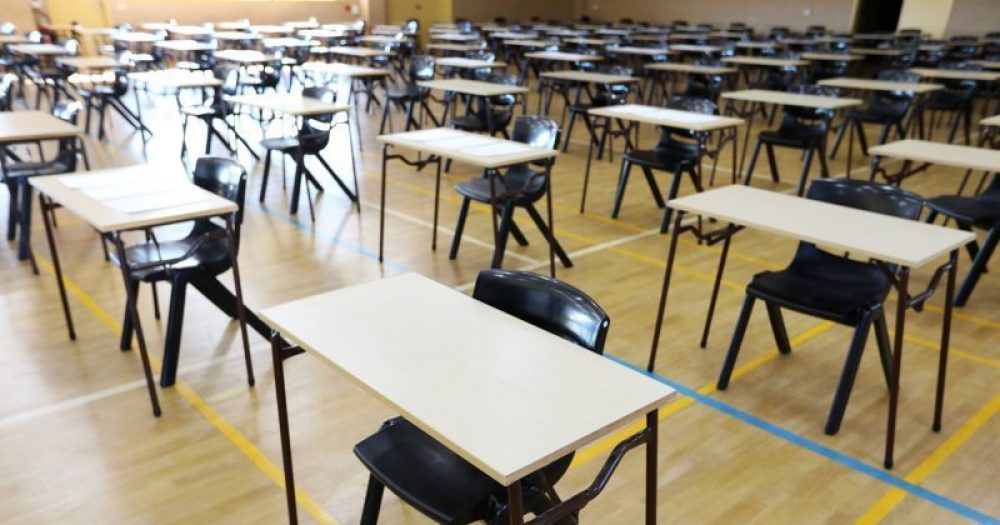England’s largest exam board has hiked fees for some of its most popular GCSE and A-level subjects by up to 10 per cent, as its competitors also set inflation-busting prices.
AQA’s A-level entry fees for top subjects next summer will be between 3.5 per cent and 7 per cent higher on this year, with GCSE prices typically increasing by about 3.5 per cent.
But next year entry to AQA’s business studies and geography GCSEs – two of their most popular subjects – will cost 10 per cent more, as will entries to citizenship, economics and sociology. A geography entry will rise from £48.20 to £53.05.
Entries into AQA’s A-level languages will also cost about 7 per cent more, the analysis by Lee Hitchen of arc exams, a former OCR staffer, shows.
A-level and GCSE subjects with more than 30,000 and 100,000 entries respectively were treated as the most popular courses for the analysis.
OCR and Pearson Edexcel have also raised their fees for next year, typically increasing them by 6 per cent and 5.9 per cent, respectively. These jumps outstrip the current rate of inflation, which was 2.2 per cent in the year to July.
The exam boards now look set to net millions in extra entry fee revenue between them across GCSEs and A-levels next summer. It comes after an Ofqual report in May revealed prices of GCSE and A-level exams had already soared by 6.4 per cent this year.
Schools ‘simply cannot afford rises’
Pepe Di’Iasio, general secretary of the ASCL leaders’ union, vowed to raise the issue with exams regulator Ofqual and ministers.
“We can see no justifiable reason why exam fees should rise by any more than (the current rate of inflation), let alone the significantly higher increases being charged by the exam boards.

“It is completely unacceptable and will put schools and colleges under yet more cost pressures that they simply cannot afford.”
AQA published its summer 2025 entry fees last month, initially reporting most would rise by about two per cent, with a few exceptions.
It said this initial publication contained some incorrect numbers, which it corrected that day and before other exam boards published their own fees.
Across the 11 most popular A-level subjects looked at for the analysis, AQA is predicted to accrue an additional £755,000 in revenue after upwardly revising its initial figures.
Rises ‘hard to stomach’ but earlier publication welcome
Paul Whiteman, NAHT general secretary, said the financial pressures facing schools meant “all costs are subject to review and these above-inflation rises by exam boards are really hard to stomach”.
“The cost of examinations is not discretionary expenditure for secondary schools and colleges – the only choice they have is which exam board to use for the qualifications they offer.”

But NAHT welcomed exam boards publishing pricing information earlier, saying it helped cash-strapped schools plan upcoming expenditure.
However, this “does not in itself compensate for the additional budgetary pressures these big increases in fees will place upon schools”.
AQA previously raised entry fees for some subjects by as much as 16.5 per cent for 2024, as Schools Week reported last year. But the exam board’s fees for most other subjects only jumped by 4 per this summer, whereas OCR and Edexcel implemented 7 per cent increases.
“As an education charity, we reinvest exam entry fees back into education and research,” and AQA spokesperson said.
“Like many other organisations we’ve had to deal with rising costs. Last month, we announced increases to exam entry fees so that they better reflect the true cost of delivering qualifications.”
They said that for EBacc subjects, such as English language and literature, maths, and the sciences, AQA exam entry fees were still lower than those of other exam boards, after it increased entry fees for these by between 3.4 per cent and 3.5 per cent for next summer.
Exam boards say they’ve kept fees ‘as low as possible’
Pearson has increased fees for its A-level and GCSE sciences by about 5.9 per cent for next summer, with similar jumps across other subjects.
A spokesperson for the company said its recognised “budgets are stretched” and will “always aim to keep fee increases to a minimum, while providing as much value for money as possible”.
They said the fees include “two full years of support for teachers”, with “access to scripts at no extra charge, as well as data for school staff to help inform more personalised teaching and learning at both individual school and MAT level”.
OCR’s entry fee for A-level maths next summer is £156, up 6.12 per cent on £147 this year, among other rises.
A spokesperson for OCR said: “As a not-for-profit, OCR only increases fees to meet rising costs and fund essential investment to keep exams fair, secure, and future-proof.
“We’ve done everything we can to keep our fees as low as possible despite continuing cost pressures.”
They said it took time for cost pressures to feed through the supply chain, meaning there is often a lag between headline economic indicators and qualification fee increases.
Cumulatively, over the past three years OCR said its fees had increased in line with the average Consumer Price Index (CPI) for the period – about 6 per cent.
















According to Ofqual’s former Chief Regulator, Dame Glenys Stacey, grades are ‘reliable to one grade either way’. This is equivalent to the more direct statement that about 1 grade in every 4 is wrong, as demonstrated here (https://rethinkingassessment.com/rethinking-blogs/just-how-reliable-are-exam-grades/).
Under S128(6) of the Apprenticeships, Skills, Children and Learning Act 2009, Ofqual has a statutory duty “to secure that regulated qualifications … represent value for money”. (https://www.legislation.gov.uk/ukpga/2009/22/section/128)
Schools spend in excess of £300 M every year – now more – on exam fees.
For a product that fails on 1 use in every 4, how can this “represent value for money”?